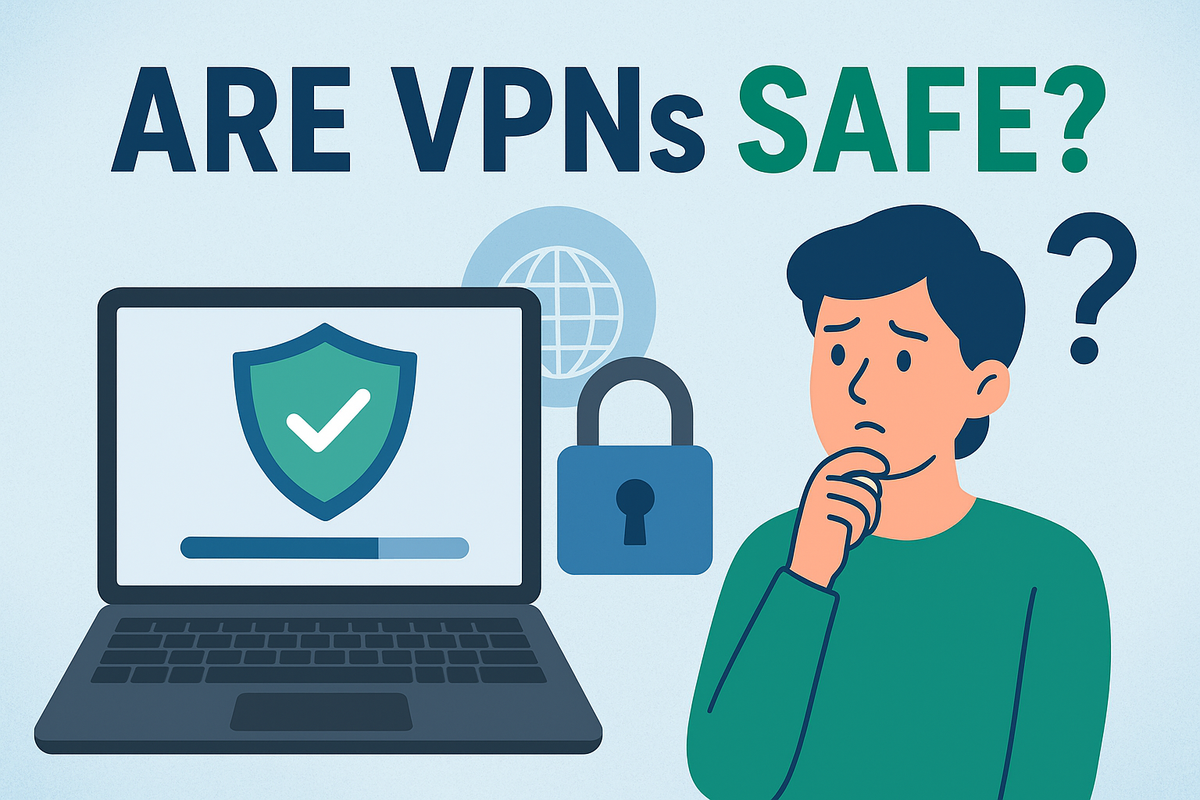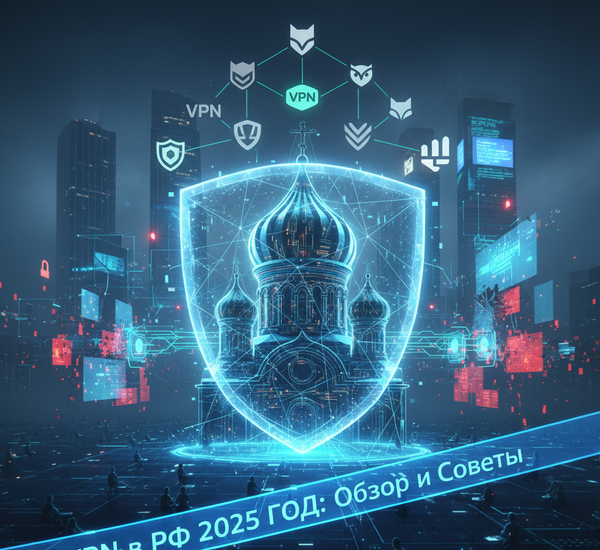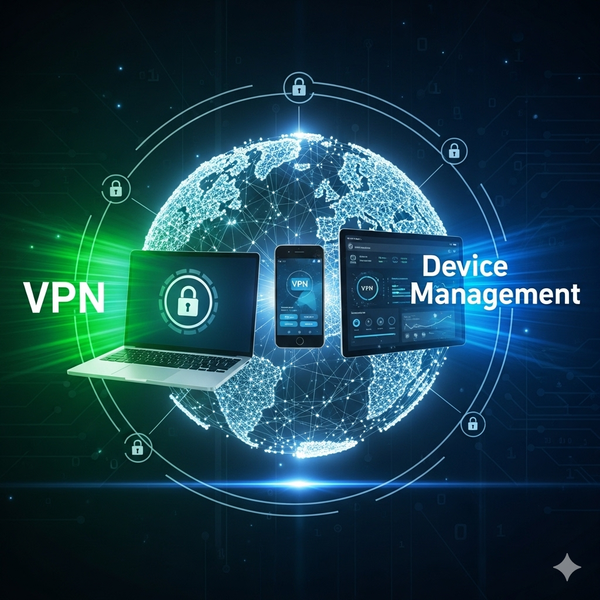Are VPNs Safe? Ultimate Guide to Protecting Your Online Privacy in 2025

1. Introduction: Why Online Privacy Matters
In today’s digital world, protecting your online privacy has become more important than ever. Every click, search, and message you send online leaves a digital footprint, and cyber threats are constantly evolving. From hackers trying to steal personal information to internet service providers monitoring your activity, the risks are real.
One of the most common solutions people consider is a VPN. But many ask themselves: are VPN safe? The short answer is that VPNs can be very safe if you choose a reliable provider. A trustworthy VPN encrypts your internet connection, protects your data from prying eyes, and even allows you to access content that might be blocked in your region.
For example, Winston VPN offers a practical way to stay secure online. It provides 3 days of free access, allows you to connect up to 5 devices on a single subscription, and ensures that your data remains protected while giving you access to blocked websites. This makes it an ideal choice for anyone wondering are VPN safe and how to secure their digital life.
Understanding why VPNs are necessary is the first step toward making smarter decisions online. As we continue, we will dive deeper into how VPNs work and the safety measures you should look for to protect yourself.
2. What is a VPN and How Does It Work?
A VPN, or Virtual Private Network, is a service that creates a secure and encrypted connection between your device and the internet. Essentially, it acts as a private tunnel through which your data travels, shielding it from hackers, internet service providers, and other prying eyes.
When you use a VPN, your real IP address is hidden and replaced with one provided by the VPN server. This not only protects your identity online but also allows you to access websites and services that may be restricted in your region. Because of these features, many people ask the question: are VPN safe? The answer depends on the provider. Not all VPNs offer the same level of encryption or privacy policies, so choosing a reputable service is critical.
Free VPNs might seem appealing, but they often come with limitations or even risks. Some may log your data or inject ads, which compromises your security rather than enhancing it. Paid VPNs, especially trusted providers, generally offer stronger encryption, faster speeds, and reliable privacy policies.
For example, Winston VPN is designed to provide robust security without sacrificing speed. With support for up to 5 devices on one subscription, it lets you secure your phone, tablet, and computer simultaneously. Plus, it allows access to blocked sites and ensures your data stays private, making it an excellent choice for anyone asking, are VPN safe.
Understanding how a VPN works is the foundation for using it safely. In the next section, we will examine the potential risks and explain how to determine which VPN services are truly secure.
3. Are VPNs Safe? Examining the Risks
The question are VPN safe is one of the most common concerns among internet users today. While VPNs are generally designed to enhance your privacy and security, not all VPN services are created equal. Some may pose risks if they are poorly managed or operate with questionable policies.
Potential Risks of Using VPNs
- Data Logging: Some VPN providers keep logs of your online activity. If these logs are ever exposed, your privacy is compromised.
- Weak Encryption: VPNs that use outdated or weak encryption methods can leave your data vulnerable to hackers.
- Malicious Free VPNs: Free VPN services may inject ads, sell user data, or even contain malware, which defeats the purpose of using a VPN.
- Slow Speeds or Unreliable Connections: While not a security risk per se, unstable VPN connections can expose your real IP address during drops, leaving your identity momentarily unprotected.
How to Ensure Your VPN is Safe
To answer the question are VPN safe confidently, you need to focus on three key areas:
- Trustworthy Provider: Choose a VPN with a clear privacy policy and no history of data breaches.
- Strong Encryption: Look for VPNs that use AES-256 encryption and modern security protocols like OpenVPN or WireGuard.
- Reliable Reputation: Check independent reviews and user feedback to verify a VPN’s reliability.
For a safe and user-friendly option, Winston VPN provides a reliable solution. It offers strong encryption, protects up to 5 devices under one subscription, and even allows access to blocked websites. With a free 3-day trial, you can test its security features and see firsthand how it safeguards your online activities.
Understanding the risks of unsafe VPNs is crucial, but with the right service, you can enjoy enhanced privacy, secure data transmission, and unrestricted access to online content.
4. Benefits of Using a VPN
Using a VPN comes with numerous advantages that go beyond simple privacy protection. Many people ask themselves are VPN safe, and the benefits can help clarify why a trusted VPN is essential for modern internet use.
1. Enhanced Online Privacy
A VPN encrypts your internet traffic, making it nearly impossible for hackers, ISPs, or government agencies to track your online activities. This is particularly important when using public Wi-Fi networks, which are often insecure and prone to cyber attacks. By hiding your IP address, a VPN ensures that your identity and personal data remain private.
2. Access to Blocked Websites
One of the most practical benefits of using a VPN is bypassing geo-restrictions. Many websites, streaming platforms, and online services are restricted based on your location. A VPN allows you to access these sites safely and anonymously. For instance, Winston VPN lets you reach blocked content while keeping your data fully protected.
3. Secure Multiple Devices
Modern users often have multiple devices, from smartphones and tablets to laptops and smart TVs. A reliable VPN protects all of these simultaneously. Winston VPN, for example, allows up to 5 devices on a single subscription, ensuring that your whole digital life remains safe.
4. Improved Security for Online Transactions
If you frequently shop online or handle sensitive financial information, a VPN adds an extra layer of protection. Encrypted connections prevent cybercriminals from intercepting your data, keeping credit card details and banking information safe.
5. Freedom and Anonymity
Beyond privacy and security, a VPN gives you the freedom to browse the web without limitations. It allows you to remain anonymous, which is crucial for those concerned about surveillance, censorship, or online tracking. By choosing a trusted VPN, you can enjoy the internet without compromising your personal information.
5. Common Myths About VPN Safety
Despite their popularity, VPNs are often misunderstood. Many users ask, are VPN safe, because of myths that circulate online. Let’s break down some of the most common misconceptions and clarify the truth.
Myth 1: VPNs Make You Completely Anonymous
While a VPN hides your IP address and encrypts your traffic, it does not make you invisible online. Websites, apps, and services can still track activity through cookies or account logins. However, using a trusted VPN like Winston VPN significantly reduces tracking risks and enhances your privacy.
Myth 2: All VPNs Are Unsafe
Not all VPNs are risky. The safety of a VPN depends on the provider’s security measures, encryption standards, and privacy policies. Free or unknown services may pose risks, but reputable providers like Winston VPN offer strong encryption, clear privacy policies, and multi-device protection.
Myth 3: VPNs Always Slow Down Your Internet
While VPNs add an extra layer between your device and the internet, modern VPNs are optimized for speed. Winston VPN, for example, ensures fast connections even while encrypting data, allowing you to stream, browse, and download without noticeable slowdowns.
Myth 4: VPNs Can Protect Against All Cyber Threats
A VPN enhances privacy and security but does not replace antivirus software, firewalls, or cautious online behavior. It’s a crucial tool for protection but should be combined with other cybersecurity measures for full safety.
Myth 5: Using a VPN Is Illegal
In most countries, using a VPN is completely legal. However, accessing illegal content is still against the law. A VPN simply provides privacy and access; it does not grant immunity from legal responsibilities.
By understanding these myths, users can make informed decisions and answer the question are VPN safe with confidence. Choosing a trusted VPN like Winston VPN ensures safety while enjoying all the benefits a VPN offers.
6. Choosing the Right VPN for You
When deciding on a VPN, the key question is often are VPN safe for your specific needs. The right VPN should combine strong security, privacy, and convenience. Here’s how to choose wisely:
1. Security and Encryption
A reliable VPN uses robust encryption standards like AES-256 and secure protocols such as OpenVPN or WireGuard. These measures protect your data from hackers, ISPs, and other cyber threats. Avoid VPNs with weak or outdated encryption, as they can leave your personal information exposed.
2. Privacy Policy
Not all VPNs handle data responsibly. Look for a VPN with a clear, transparent privacy policy that guarantees no logs of your activity. This ensures that even the VPN provider cannot see or share your browsing history.
3. Device Support
If you use multiple devices, you need a VPN that supports them all. A service like Winston VPN allows up to 5 devices on a single subscription, so you can secure your phone, tablet, laptop, and more without paying extra.
4. Speed and Reliability
A slow or unreliable VPN can be frustrating, especially if you stream videos or play online games. Choose a provider known for stable connections and minimal speed loss. Winston VPN offers optimized servers for fast and smooth browsing, even when accessing restricted sites.
5. Access to Blocked Content
If you want to bypass geo-restrictions or censorship, the VPN should provide access to blocked websites and streaming platforms. Winston VPN allows seamless access to restricted content while keeping your data protected.
6. Free Trials or Money-Back Guarantees
Testing a VPN before committing is always smart. Winston VPN offers 3 days of free access, giving you a chance to evaluate its performance, security, and usability.
By carefully considering these factors, you can confidently answer the question are VPN safe and choose a VPN that protects your online privacy without compromising performance or convenience.
7. How to Maximize Your Online Security With a VPN
Even with a trusted VPN, it’s important to follow best practices to ensure maximum online security. If you’re wondering are VPN safe, these tips will help you use your VPN effectively and protect your digital life.
1. Always Connect Before Browsing
Make it a habit to turn on your VPN before accessing the internet, especially on public Wi-Fi networks.
2. Use Strong Passwords and Two-Factor Authentication
While a VPN secures your connection, your accounts can still be vulnerable if you use weak passwords.
3. Keep Your Devices Updated
Regular updates patch security vulnerabilities, complementing the VPN’s protection.
4. Avoid Free and Unverified VPNs
Not all VPNs are safe. Free or unknown services can compromise your data or track your activity. Using a reputable provider like Winston VPN ensures strong encryption, multi-device protection, and access to blocked websites.
5. Use VPN Features Wisely
Advanced features like kill switches and split tunneling enhance security and control. Winston VPN comes with easy-to-use options to optimize both privacy and convenience.
6. Be Mindful of What You Share Online
A VPN protects your connection, but personal information shared online can still be exposed.
By following these steps, you can maximize the safety benefits of your VPN and confidently enjoy private, unrestricted internet access.
8. Conclusion
The question are VPN safe is one that many internet users ask as they navigate an increasingly connected world. The truth is that VPNs can be extremely safe and beneficial when chosen wisely. They protect your personal data, hide your IP address, and give you access to blocked websites, all while allowing secure browsing across multiple devices.
Choosing the right VPN is crucial. Trusted VPNs not only protect your data but also provide peace of mind. For those looking for a secure and user-friendly option, Winston VPN is an excellent choice. With 3 days of free access, the ability to connect up to 5 devices, and access to blocked content, Winston VPN combines privacy, convenience, and security.
In summary, VPNs are safe when used responsibly and with a trusted provider. By incorporating a reliable VPN into your online routine, you can enjoy the internet with greater privacy, security, and freedom than ever before.


